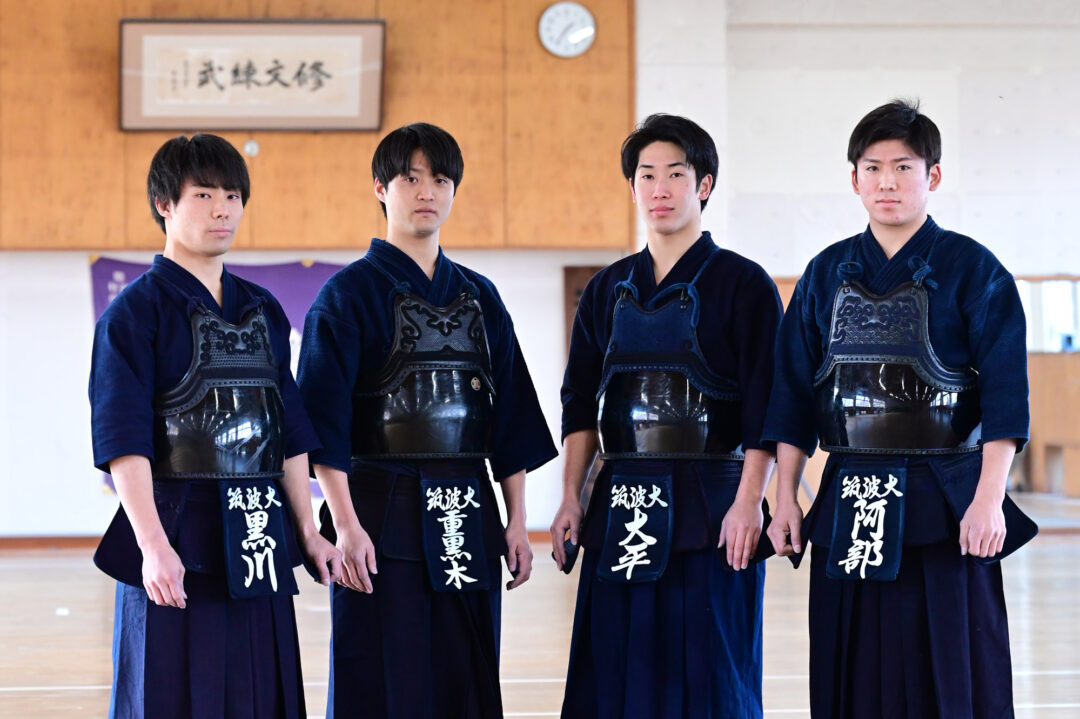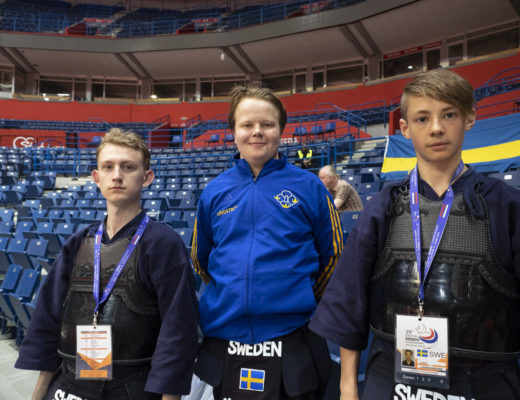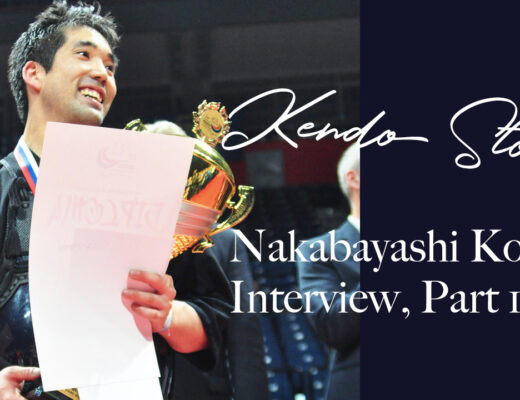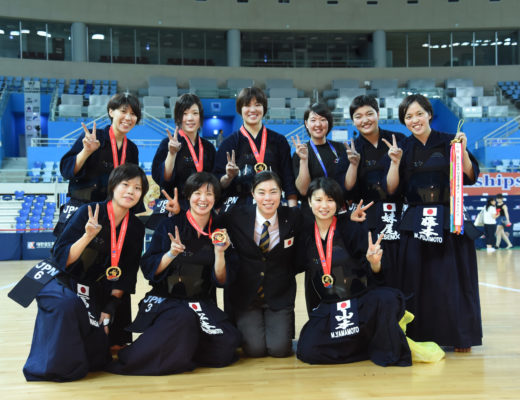2023 KENDOJIDAI
Composition: Teraoka Tomoyuki
Photography: Nishiguchi Kunihiko
Translation: Jouke van der Woude
The famous University of Tsukuba achieved its first national title in a long time. The team was led by four seniors: Ohira Shoshi, Kurokawa Yudai, Jukurogi Yusuke, and Abe Soki. They came to Tsukuba with the aim of becoming the best in Japan. In this article, they reflect on their four years at the University of Tsukuba and discuss how they were able to achieve their goal of being number one.
Kurokawa Yudai
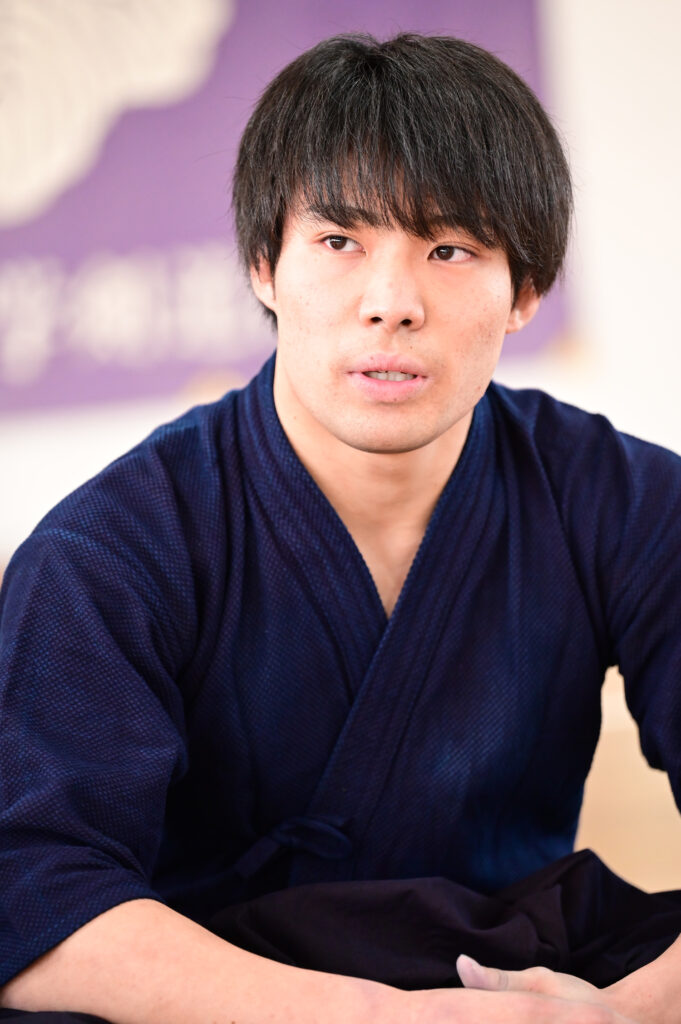
Abe Soki
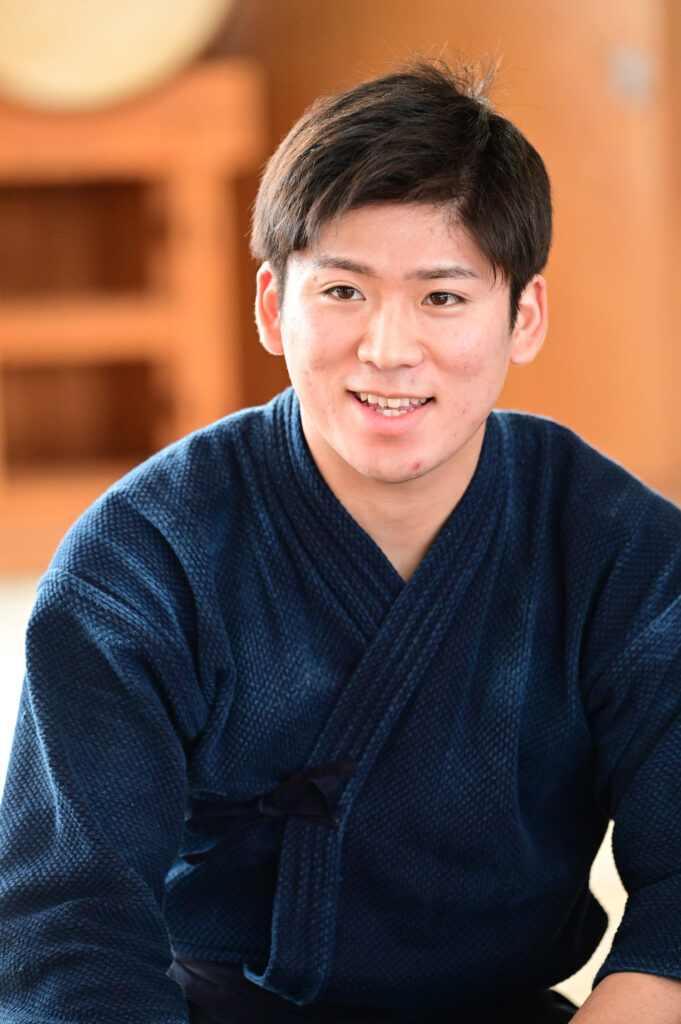
Jukurogi Yusuke
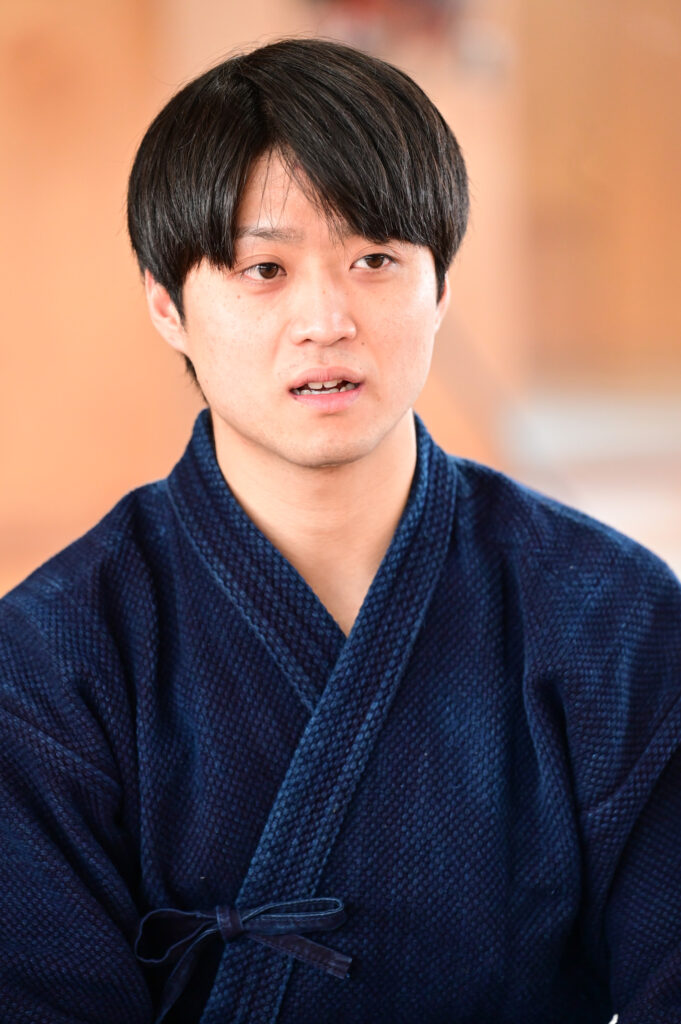
Ohira Shoshi
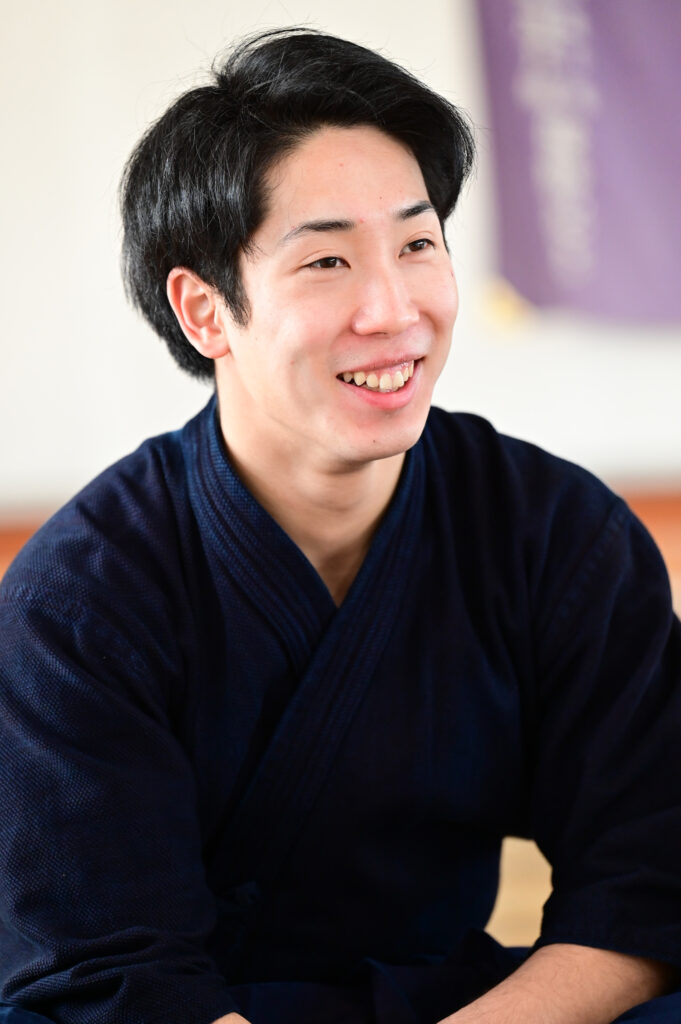
Reaping the rewards of 3 years of commitment
Respective results across 1 year
When you entered your third year, and halfway through your university life, did you feel that securing a spot on the university team was essential to reaching your goal of becoming the best in Japan?
Abe: Absolutely. When we entered our third year, I had one thing on my mind – getting into the lineup. I had been working hard to improve my performance during in-house practice Shiai, and I was starting to notice results.
Ohira: I also had the opportunity to compete in the All Japan Kendo Championship, but I hadn’t yet solidified my position as a regular on the team. My first and foremost goal was to be on it.
Jukurogi: At the University of Tsukuba, we determined the competitors every year through training camps and selection Shiai. Since there were no tournaments the previous year, I think we all started on an equal footing.
Kurokawa: I definitely wanted to be on the team and establish my position. I had a strong desire for that.
In the early spring, the Kanto Student Individual Kendo Championship, a long-awaited student tournament, took place.
Jukurogi: I reached the Best 8. It was my first time participating in an individual competition, and my goal was to secure a spot at the All Japan Student Individual Kendo Championship. I lost to Iwakiri, but I made it to the Best 8, so I was going to compete at the national level, so I didn’t feel too down.
Ohira: I lost in the first round. Not being able to secure a spot at the All Japan Student Individual Kendo Championship was frustrating. This defeat might have been the most regrettable moment of my university life. It was my first time representing the University of Tsukuba in Shiai, and my mindset was still weak. However, I think it was precisely because I had that feeling that I was able to keep doing my best.
In the Kanto Student Team Kendo Championship, all four of you finally came together as team competitors, and you also took the title.
Abe: I was finally on the team, and we won the title, so I felt a sense of satisfaction.
Jukurogi: Of course, winning was a joy, but since it was the Kanto region, we knew there was more to come.
Kurokawa: I had the desire to compete alongside my grade peers, and I felt happy, but in the end, I think it was a tournament where we were carried by our seniors.
It seems like each of you had your own thoughts about it. And at the All Japan Student Team Kendo Championship, you ended up in third place after losing to Kokushikan University.
Abe: We really gave it our all for the All Japan Student Team Kendo Championship. We were living a lifestyle as if we were residing at the Dojo, running around the university perimeter after Keiko, and even doing hill sprints. I have memories of pushing myself to the limit.
Jukurogi: I think we were probably the only ones in our year who pushed ourselves that hard. Back in our first year, we won in Kanto but lost nationally, so this time, we were determined to win at the national level as well. We talked with our teammates about not settling for just the Kanto title and striving for another level.
Kurokawa: Instead of relying entirely on our seniors, we also had a strong desire to become the best in Japan through our own efforts.
Ohira: Since everyone shared that feeling, it was really tough for us to accept the reality when we lost to Kokushikan.
Abe: Looking back now, perhaps the reason we lost was that each of us had a strong desire to win individually. In team Shiai, it’s crucial to foster a sense of connection. Despite having designated roles, we couldn’t execute them effectively.
Jukurogi: Our focus was more on individual efforts rather than winning as a team, which may have been why we couldn’t take home that close Shiai.
After the All Japan Student Team Kendo Championship, the postponed All Japan Student Individual Kendo Championship was held at the end of the year. Before that, there was also the All Japan Kendo Championship, and this time, Ohira, Kurokawa, and Abe secured their spots.
Abe: In my case, I faced Takenouchi Yuya in the first round. I had been telling everyone around me that if I qualified, I wanted to fight Takenouchi. It’s the dream stage, and I wanted to compete against famous competitors and make a name for myself by winning. And then, it actually happened that I got to face Takenouchi. There were plenty of videos of Takenouchi online, so I did a ton of research. Actually winning was outside of expectation, so that tournament gave me a lot of confidence.
Ohira: It was my second appearance, and in my first appearance, I was just happy to participate. But this time, I wanted to aim higher. I lost in the Best 8, but it was an enjoyable tournament.
Kurokawa: The All Japan Kendo Championship is truly a dream stage, and I never thought I would have the opportunity to compete there as a student. Stepping onto that stage made me incredibly happy, and if I was going to participate, I also wanted to become the best in Japan. I lost to Hayashida in the third round and he is not only my senior from high school but also a competitor of legendary status. To be able to compete against such a competitor and, in my own way, feel like I had a chance was significant. I believe the confidence I gained at that time contributed to my performance in the intercollegiate tournaments.
Kurokawa won the All Japan Individual Student Championship and took the collegiate national title. Please share your honest feelings at that moment.
Jukurogi: Amongst us, I was the only one who couldn’t participate in the All Japan Kendo Championship. Everyone was working hard, to the extent that they received the Outstanding Player Award. I felt that I needed to achieve good results at this tournament, and it was the most regrettable day for me in those three years.
Ohira: I was happy for Kurokawa’s title at the All Japan Individual Student Championship as a fellow classmate, but I haven’t even secured a spot there because I lost in the Kanto tournament. I felt a sense of regret for not being able to participate there.
Abe: At that time, I was attending the All Japan Kendo Federation’s Honebuto training camp. When I heard the news of Kurokawa’s victory, I was genuinely thrilled, as if it was my own achievement. Instead of dwelling on the frustration, it motivated me not to lose. We’ve been driven by the success of those around us, and I think that’s what has kept us going to this point.
Kurokawa: It was my first individual national title in my life. In my third year, I felt a real sense that my effort paid off, and I had placed my hopes on this tournament. Winning there made me incredibly happy.
The challenge of strengthening teamwork
Finally achieving the collegiate national title
The rest of this article is only available for Kendo Jidai International subscribers!

